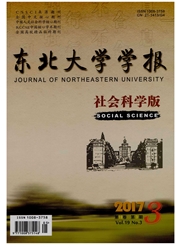

 中文摘要:
中文摘要:
“现代性”是一个百家争鸣的理论领域,其中马克思和吉登斯的观点具有重要代表性。尽管马克思并没有明确提出“现代性”概念,但却代表着现代性批判的根本方向,因为现代性悖论产生的内在动因正是被马克思持续批判的资本逻辑;尽管生态批判不可能成为马克思和其所处时代的主要任务,但他却在对资本、工具理性和异化劳动的现代性批判中,经意不经意间展露出深刻的生态思想。发展到20世纪,吉登斯的现代性思想亦是在“资本主义”这一历史语境下展开的,自然离不开马克思,他的现代性批判中的生态思想对马克思有着微妙的“继承”。对于二者深刻的生态批判思想,有必要结合实际实现“中国解读”,进而对我国生态文明建设能有所启示。
 英文摘要:
英文摘要:
Although modernity is a theoretical field in which all schools of thought contend, the views of Marx and Giddens are among the most representative figures. Although Marx did not explicitly raise the concept of modernity, he always represented the fundamental direction of critique of modernity in that the intrinsic factor of modernity's paradox is what Marx continuously criticized capital logic. It is true that ecological critique couldn't be a main task for Marx in his time, but he unintentionally revealed his own profound ecological thoughts in his critique of capital, instrumental rationality and alienated labor. In the twentieth century, Giddens's thoughts of modernity also developed in the context of capitalism, so they couldn't do without Marx; i. e. , he subtly "inherited" Marx. It is of great benefit to interpret the two thinkers' profound thoughts of ecological critique in the context of China, which may carry implications to China's ecological civilization construction.
 同期刊论文项目
同期刊论文项目
 同项目期刊论文
同项目期刊论文
 期刊信息
期刊信息
